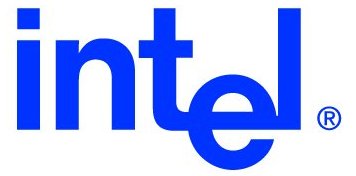 Intel
Personal Development System (iPDS™)
iPDS100
resources page
Intel
Personal Development System (iPDS™)
iPDS100
resources page
![]()
intel ipds resources download directory http://matthieu.benoit.free.fr/intel/iPDS/
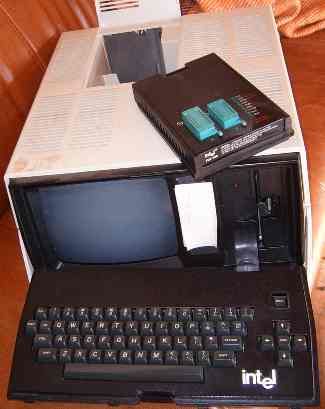
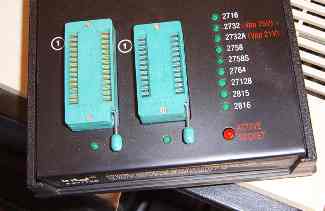
![]()
 Intel
Personal Development System (iPDS™)
iPDS100
resources page
Intel
Personal Development System (iPDS™)
iPDS100
resources page
![]()
intel ipds resources download directory http://matthieu.benoit.free.fr/intel/iPDS/


![]()
![]() Intel
Personal Development System User's Guide (PDF - 14.4 Mb - 715 pages)
Intel
Personal Development System User's Guide (PDF - 14.4 Mb - 715 pages)
![]()
https://www.intel-vintage.info/inteldevelopmenttools.htm
![]()
![]()
![]() Intel iPDS Patent US4621319(A)
(PDF - 1Mb- 18 pages)
Intel iPDS Patent US4621319(A)
(PDF - 1Mb- 18 pages)
![]()
![]() iPDS Disk Structure (PDF-
376Kb -12 pages)
iPDS Disk Structure (PDF-
376Kb -12 pages)
![]()
http://www.qsl.net/k7yo/PDS.html Jim Garver K7YO
He is fond of the equipment, his first project at Intel Corp. Hillsboro, Oregon, 1983. He spent 16 years at Intel during their best days.
There were terrible problems with the PDS machine, really. Very ESD susceptible and poor OEM quality such as power supply, disk drive.
At least one of his PDS units has dual disk drives, 720K. Works much better.
![]()
New resources from Everett Feldt (07/21/2012)
He has modified his IPDS system to use 3.5 inch diskettes. He is currently using two Sony MPF520-E diskette drives with his IPDS. He connects a straight floppy cable (no twist) to J3 (internal floppy connector) of my IPDS. He uses the jumpers on the Sony drives to set drive zero and drive one. He uses high density 3.5 diskettes and cover the hole on the right side of the diskette so the floppy drive detects a low density diskette. Enclosed here is a list of floppy drive signals. This information was developed from the “iPDS BaseProcessor 83.pdf” file.
The “IPDS1.zip” file contains
IPDS files in Teledisk format
Teledisk runs under MSDOS. I suspect it works directly with the computer's floppy
disk controller. I used it with MSDOS 6.22. I do not recommend using this program
with you main computer system. I used an old IBM AT to create my disks.
Various Teledisk programs can be found at http://www.classiccmp.org/dunfield/img/index.htm
They are located under "Transfer Utilities" you will find a link
to various versions of the Teledisk programs and the following information Teledisk
is a program which reads a floppy diskette into an image file on the PC, and
can recreate a nearly exact copy of the floppy at a later date from that image
file.
For many years, Teledisk was the only program like this which could handle non-PC formats, and it became the primary method by which people preserved and exchanged system disks for classic computers Originally sold as a shareware product by a company called Sydex, all rights to Teledisk were later sold to NTI, who no longer supports it or offers it for sale.
This puts Teledisk into a state of limbo, as you cannot legally obtain or use
later NTI versions, and the Sydex shareware versions cannot be used beyond the
evaluation period without a purchased license, which you currently cannot buy.
This is one of several reasons I created ImageDisk as a replacement for Teledisk.
I urge anyone creating or manipulating new diskette images to use ImageDisk
instead of Teledisk.
Due to it's past popularity, it is likely that some of the diskette images you
need for your classic system may be available in .TD0 (Teledisk) format.
Teledisk also has a reputation for having compatibility issues between versions,
and with different PC hardware. To help you try and recover any
.TD0 images that you encounter, I have collected all of the shareware versions
of Teledisk that I have been able to find and placed them here.
Teledisk uses a closed/undocumented image file format, which means that the
only official way to access .TD0 images is with Teledisk. The ImageDisk .IMD
format is open and fully documented, if you convert .TD0 images to .IMD, you
will always have the ability to explore other means of accessing the
diskette content. To assist in converting existing Teledisk .TD0 images to ImageDisk
.IMD format, I have created two utilities, TD02IMD and TD2IMD
which are included with the current version of ImageDisk.
Please respect the Sydex/NTI license/prohibition, and use these only to recover
existing .TD0 images within the limits of the shareware evaluation
period. ImageDisk is available and recommended for all new PC diskette imaging.
![]()
![]() Intel iPDS general documentation
[PDF - 1.81 Mb - 10 Pages]
Intel iPDS general documentation
[PDF - 1.81 Mb - 10 Pages]
![]() Intel Application Note AP-179 : PROM programming
with the Intel Personal Development System (IPDS ™) (1984) [PDF- 3.79
Mb- 18 Pages]
Intel Application Note AP-179 : PROM programming
with the Intel Personal Development System (IPDS ™) (1984) [PDF- 3.79
Mb- 18 Pages]
![]() 162607-002.pdf intel (r) ipds (tm) development
system pocket reference (43 pages) (c) Intel Corp. 1982 [PDF- 1.88 Mb -43 Pages]
162607-002.pdf intel (r) ipds (tm) development
system pocket reference (43 pages) (c) Intel Corp. 1982 [PDF- 1.88 Mb -43 Pages]
![]() 165625-001.pdf intel (r) EMV-51A emulation
vehicule pocket reference (40 pages) (c) Intel Corp. 1984 [PDF- 1.31 Mb - 40
Pages]
165625-001.pdf intel (r) EMV-51A emulation
vehicule pocket reference (40 pages) (c) Intel Corp. 1984 [PDF- 1.31 Mb - 40
Pages]
![]() 5-017-1017_TTL-seriesSvc.pdf
SERVICE MANUAL CRT Data Display TTL Series (34 pages) [PDF- 2.27 Mb - ]
5-017-1017_TTL-seriesSvc.pdf
SERVICE MANUAL CRT Data Display TTL Series (34 pages) [PDF- 2.27 Mb - ]
You can use the emulator with the 8051 in Intel Isis.zip
stuff here : ![]() Intel Isis.zip [420 Kb]
Intel Isis.zip [420 Kb]
ISIS emulator at http://www.cpm.z80.de/binary.html under the "PLM compiler".
The link is http://www.cpm.z80.de/download/plm80.zip
[336 Kb]. I have used it on my home computer running XP without too many problems.
I used it to compile Kermit for the IPDS and transferred most of the IPDS
stuff to my home computer.
You can get ISIS Kermit source from ftp://kermit.columbia.edu/kermit/c/
. There are two versions the MD2 and MD files. I used the MD files.
I had to do some modifications to the source since the IPDS serial port is not at the same address as the MDS.
I compiled the source on the home PC using to above to Intel hex format.
I broke the file into three parts and used HyperTerminal to send the three Intel hex files to the IPDS.
I used the copy command on the IPDS to copy from the serial port to a file.
I copied the three files together and converted it to an executable.
Since the Intel hex file format has a check sum there is some error checking.
It works fine at low baud rates.
You can get diskette images and version of Kermit (have not tried it)
from http://www.s100-manuals.com/intel/
.
If you like this stuff, I will send you more.
![]() http://www.digibarn.com/collections/systems/intel-ipds/index.html
http://www.digibarn.com/collections/systems/intel-ipds/index.html
This link has information on the ISIS operating system:
http://www.bitsavers.org/pdf/intel/ISIS_II/ISIS_internals.pdf
Here are some IPDS schematics:
http://www.bitsavers.org/pdf/intel/iPDS/iPDS_BaseProcessor_83.pdf
These links have information on PL/M programming language:
http://www.bitsavers.org/pdf/intel/PLM/9800466-03revC_PLM86_Feb82.pdf
http://www.bitsavers.org/pdf/intel/PLM/121636-003_PLM86_Oct82.pdf
![]()
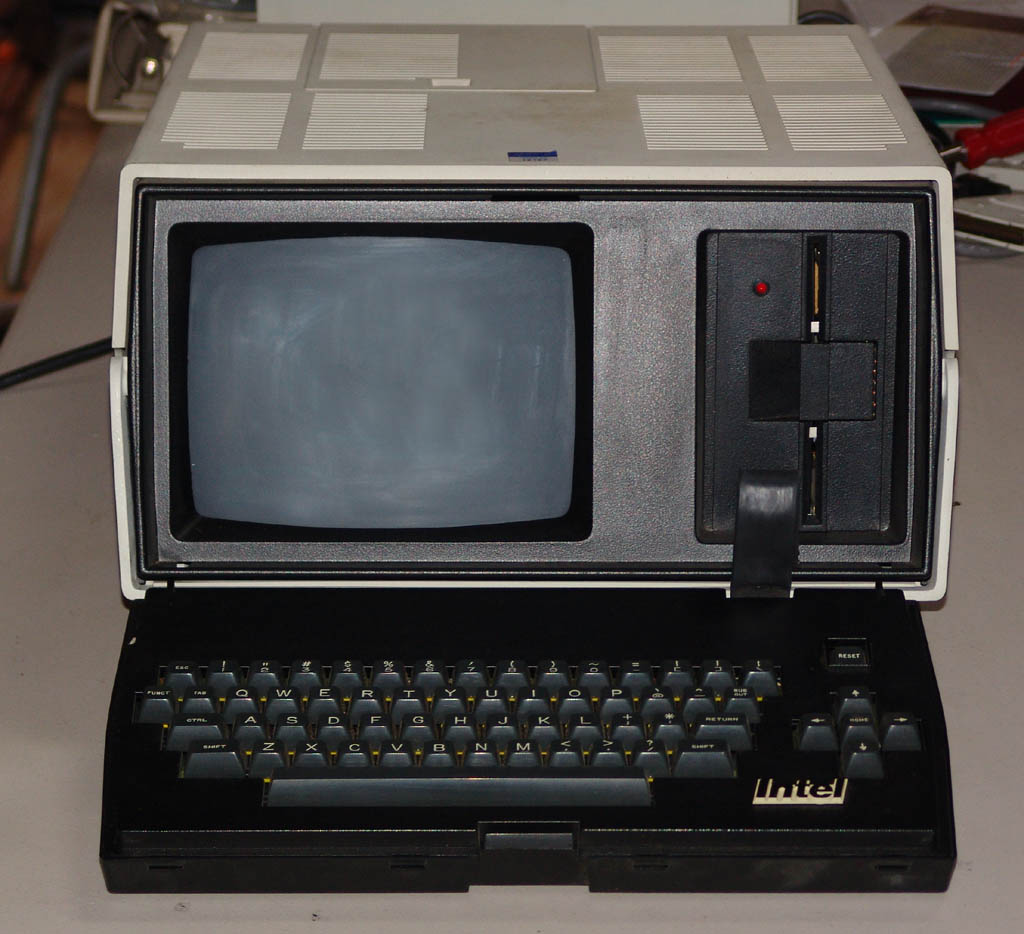
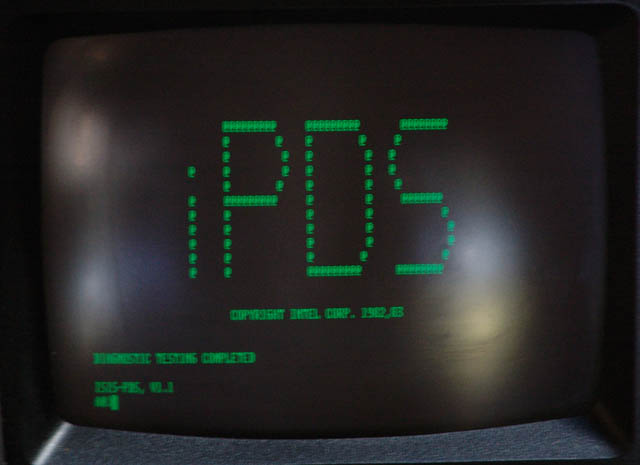

![]()
The main unit is stamped with the year 1983 at the back.
The PROM Unit is (it is a PROM programmer) for the following chips:
2716
2732 (Vpp 25V)
2732A (Vpp 21V)
2758
2758S
2764
27128
2815
2816
On the PROM Module's front edge is written the following: "Intel F27/128",
plus the following text:
CAUTION - TO PREVENT POSSIBLE DAMAGE TO THE PROM
(1) POWER MUST BE 'ON' WHILE INSTALLING OR REMOVING PROM
(2) DEVICE SELECTED MUST MATCH PROM TYPE
(3) ONLY USE THE SELECTED SOCKET
On the back edge there is written: "Intel 3401952-01"
In addition, here is also stamped two numbers: "P/C 162531-003" and
"S/N JS3333"
The main unit is equipped with one 5 1/4" floppy diskdrive if I turn it
on without a floppy inserted, it prompts the following:
A
BOOT FROM BUBBLE (Y OR N)
<answering Y results in the following:>
iPDS
<and the system prompt:>
A4>
I then tried the "DIR" command, and it listed a few files, some where
programs and other .MAC files.
One of the programs was called BINHEX and required a filename as commandline
parameter.
There was also an editor called AEDIT, which I opened ones. This appeared to
be related to the programmer.
Enclosed is some IPDS information you may be interested in. The “IPDS.zip”
file contains IPDS files in Teledisk format.
![]()
I am looking for any information about this programmer especially for the software to make it working and documentation - Please if you have any information do not hesitate to contact me at matthieu.benoit@free.fr
![]()
If you look forward for other information about this 27K eprom programmer ,
do not hesitate to contact me by e-mail at: matthieu.benoit@free.fr
. Also if you have any data about this programmer, do not hesitate to contribute
to this page.
Si vous recherchez des informations pour ce programmateur d'eprom InteL, vous pouvez me contacter par e-mail : matthieu.benoit@free.fr . De même si vous avez des informations sur ce programmateur, n'hésitez pas à contribuer à cette page.
M-à-j: 24 octobre, 2021.